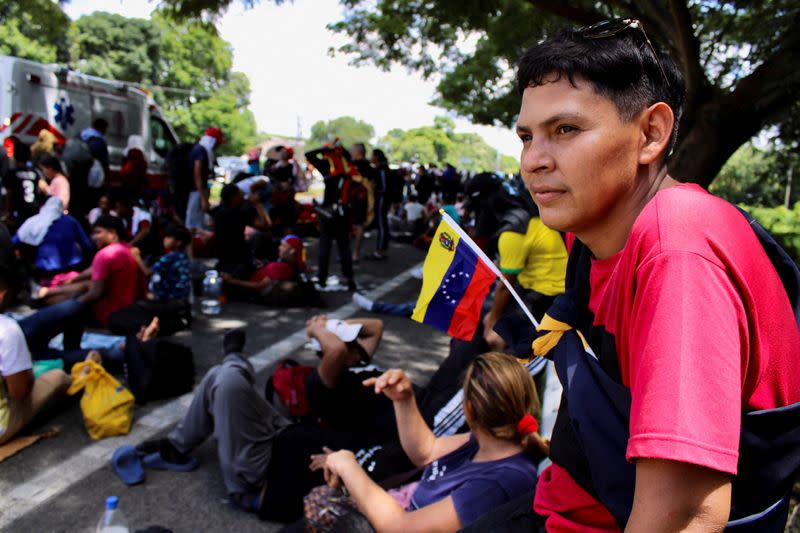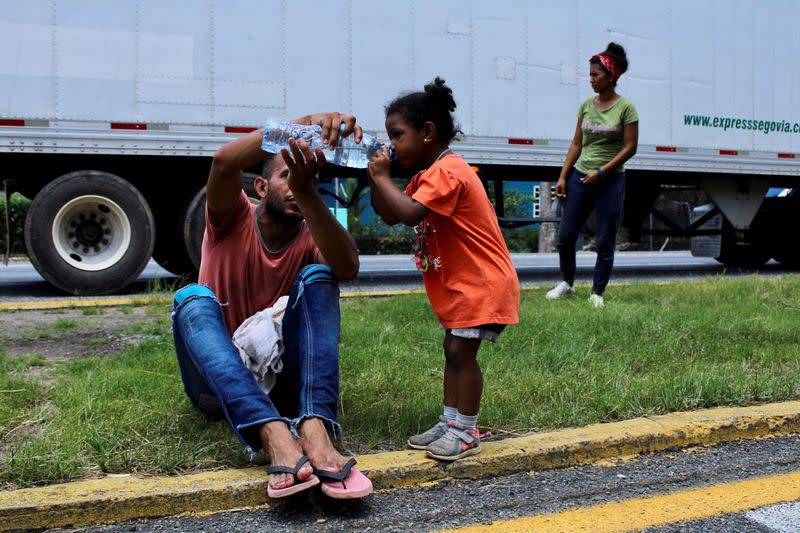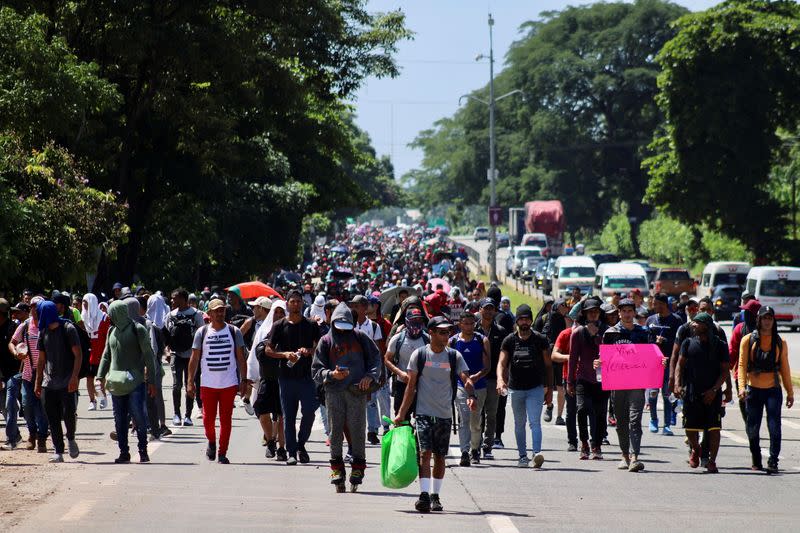Venezuelan migrants in southern Mexico form U.S.-bound caravan
By Jose Torres and Lizbeth Diaz
TAPACHULA, Mexico (Reuters) - Thousands of Venezuelan migrants stranded in southern Mexico for months set off on a northbound caravan Friday in hopes of reaching the U.S. border.
Many of them have been waiting in the city of Tapachula for a permit from the Mexican government to transit through the country without being detained by immigration authorities. But with little apparent progress, some said they would take their chances.
"We feel trapped here," said Venezuelan migrant Henry Caceres. "I don't know how we're going to do it, but we're going to find a way to get to the border."
An estimated 6 million Venezuelans have fled economic collapse and insecurity in their home country in recent years, according to United Nations figures. Many have settled in other South American countries but some have traveled north.
Mexico received 5,516 asylum applications from Venezuelans between January and May this year, according to the Mexican Commission for Refugee Assistance (COMAR), the fourth highest among all nationalities.
Others have attempted to enter the United States. However, according to data from the Department of Homeland Security, there was a sharp decline in the number of Venezuelans apprehended by U.S. officials at the border after the Mexican government began requiring visas for travelers from Venezuela in January.
The status of the migrants is complicated because Venezuela refuses to accept deportation flights from Mexico, Francisco Garduño, the head of Mexico's National Immigration Institute, told Reuters this week.
"It has not been possible to return them because their government does not have the political will," he said.
The Venezuelan government did not immediately respond to request for comment.
On Friday, the thousands of migrants in the caravan advanced slowly on foot - including Edwin Salazar, who carried his young daughter on his shoulders.
"I want to get to the United States," he said.
(Reporting by Jose Torres in Tapachula and Lizbeth Diaz in Mexico City, writing by Laura Gottesdiener, Editing by Rosalba O'Brien)





